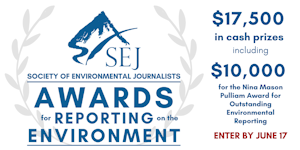"Nearly Half the States Sue E.P.A. Over New Limits on Deadly Pollution"
"Manufacturers and 24 states sued the Environmental Protection Agency on Wednesday over the Biden administration’s decision to tighten limits on fine industrial particles, one of the most common and deadliest forms of air pollution."













 Advertisement
Advertisement 



